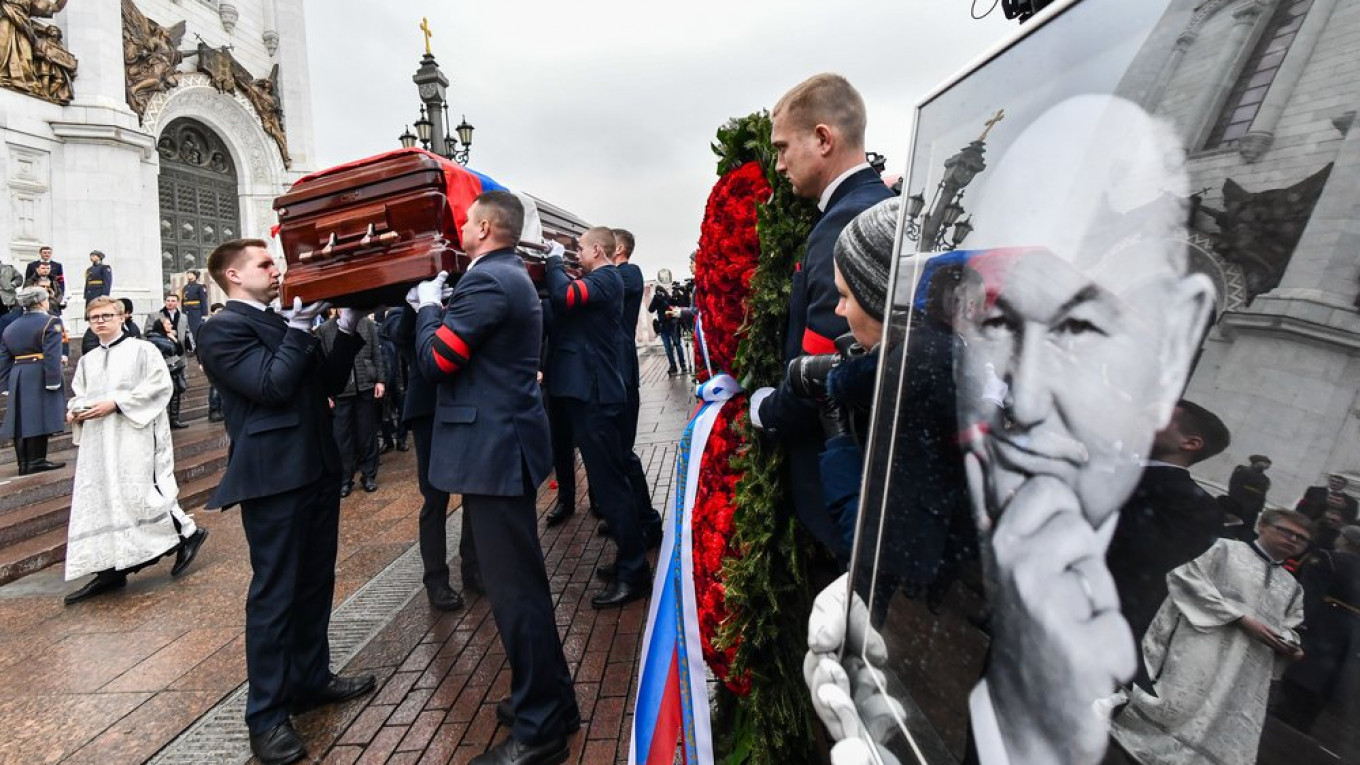This year Russians mourned the lost of many fellow citizens who played great roles in the public life of the country.
The arts were particularly hard hit this year, beginning on Jan. 1 with the death of singer and songwriter Kris Kelmi at the age of 63. Kelmi was a well-known pop singer and performer in the 1990s who also wrote the music to the popular animated film “Cat in Boots.” In April actor Alexei Buldakov, perhaps best known for his cigar-chomping performance in “Peculiarities of the National Hunt,” passed away at the age of 69. In August the Russian-American singer Villi Tokarev passed away at the age of 84. After a pop music career in the Soviet Union, he emigrated to the U.S. in 1974 and became one of the most popular stage singers in Brighton Beach, whose black-market tapes made him famous in his homeland. Tokarev returned in 1996 and had a third career in Russia.
Also in August the art world was stunned by the news that Mikhail Abramov, a prominent patron of the arts who founded and supported the private Museum of the Icon, died in a helicopter accident in Greece. He was 55 years old when he died.
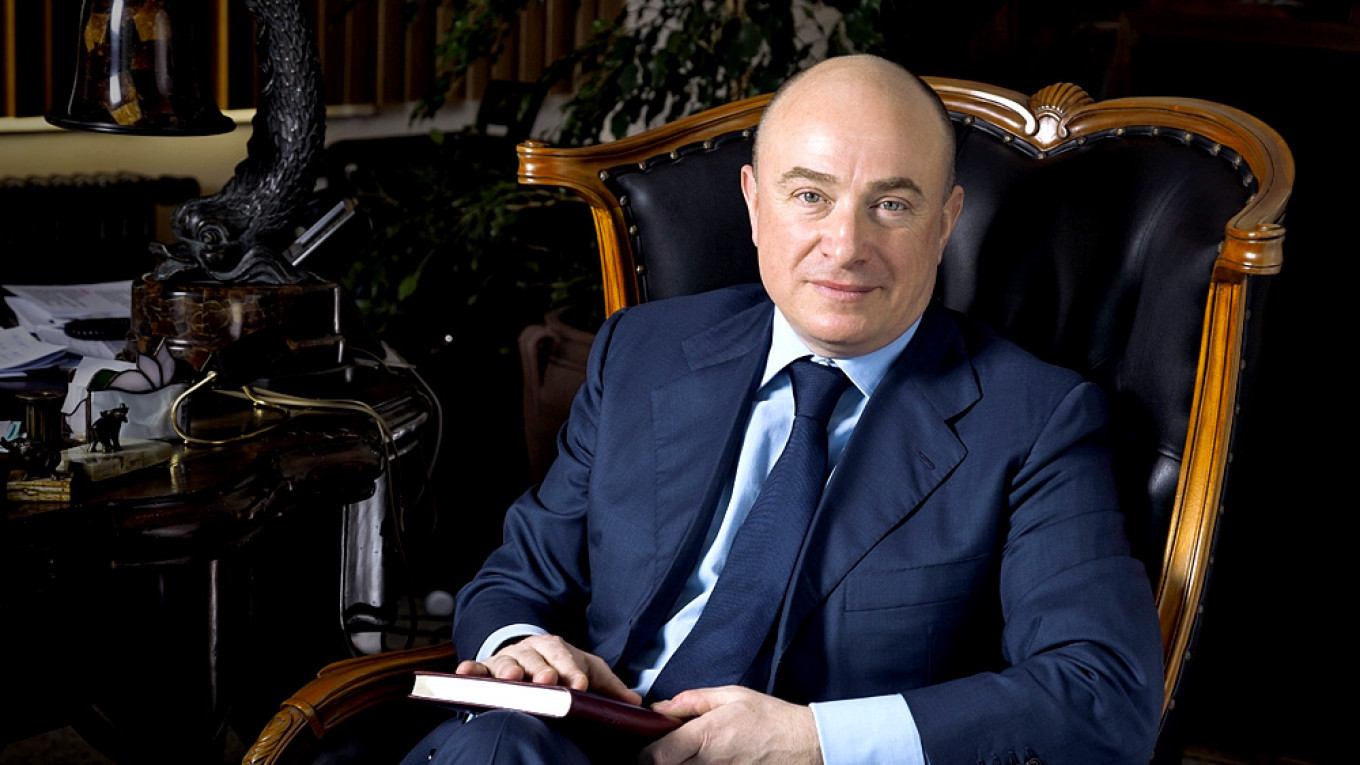
The entertainment industry and film lovers mourned the loss of director Marlen Khutsiev, who died in March at the age of 93. Best known for his feature films of the Thaw period, such as “July Rain,” Khutsiev also taught and made documentary films. Less than a month later, director Georgy Daneliya passed away at the age of 88. His films “Walking the Streets of Moscow,” “Autumn Marathon,” “Mimino” and many other captured the zeitgeist of their eras and reflected in a gently humorous and satirical light the people and the Soviet Union. In October composer Giya Kancheli, who wrote the music to “Mimino” and other films by Daneliya, as well as to dozens of movies beloved by the public, died at age 85.
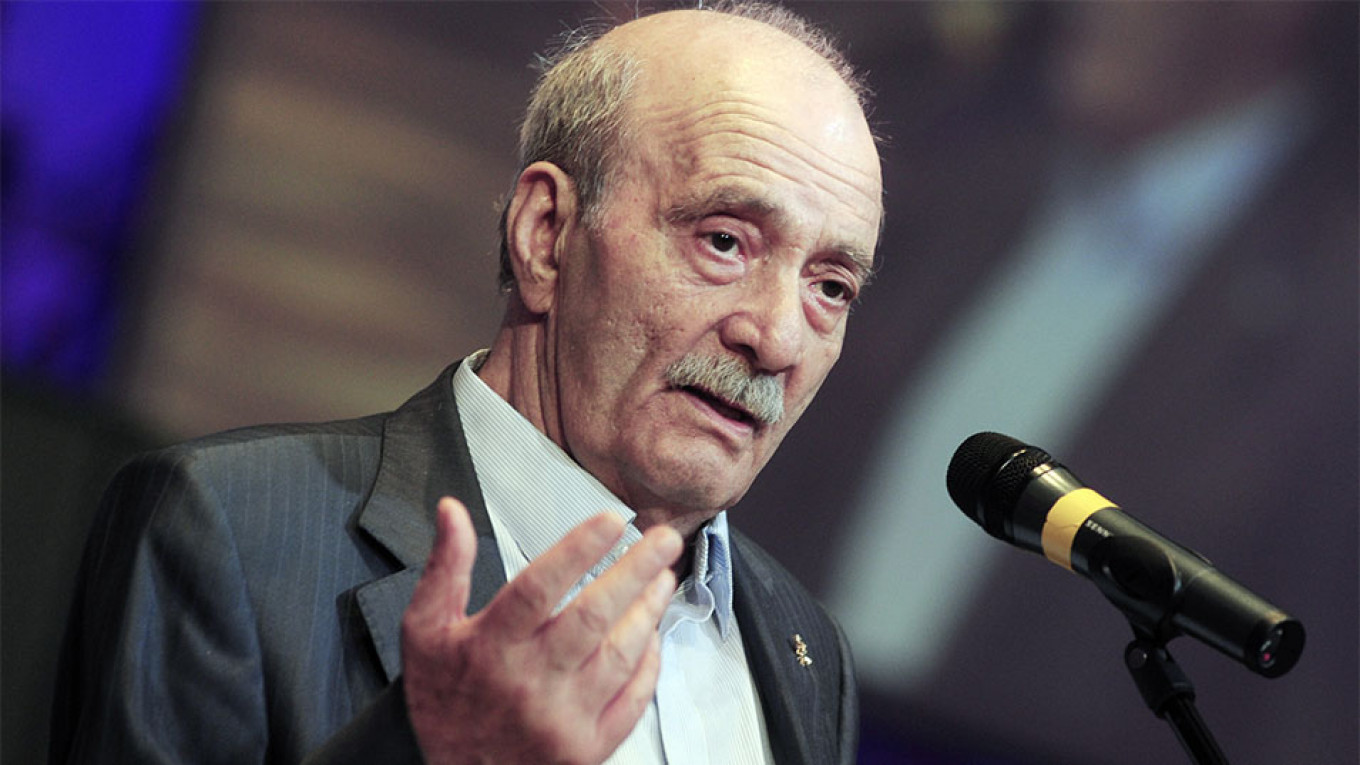
In September, film and theater director Mark Zakharov passed away at the age of 85. The artistic director of Lenkom Theater from 1973, his “dream team” of actors performed the best plays of the era. His work as a director and screenwriter in film was equally celebrated with such films as “The Twelve Chairs,” “An Ordinary Miracle” and “That Very Munchausen.”
In the sciences, Zhores Alfyorov, laureate of the Nobel Prize in physics, passed away in March. In October the entire world mourned the death of Alexei Leonov, the cosmonaut who made the first space walk in 1965. A beloved ambassador for space exploration, his death was a blow to every astronaut who knew him. His funeral was attended by 89-year-old former U.S. astronaut Thomas Stafford.
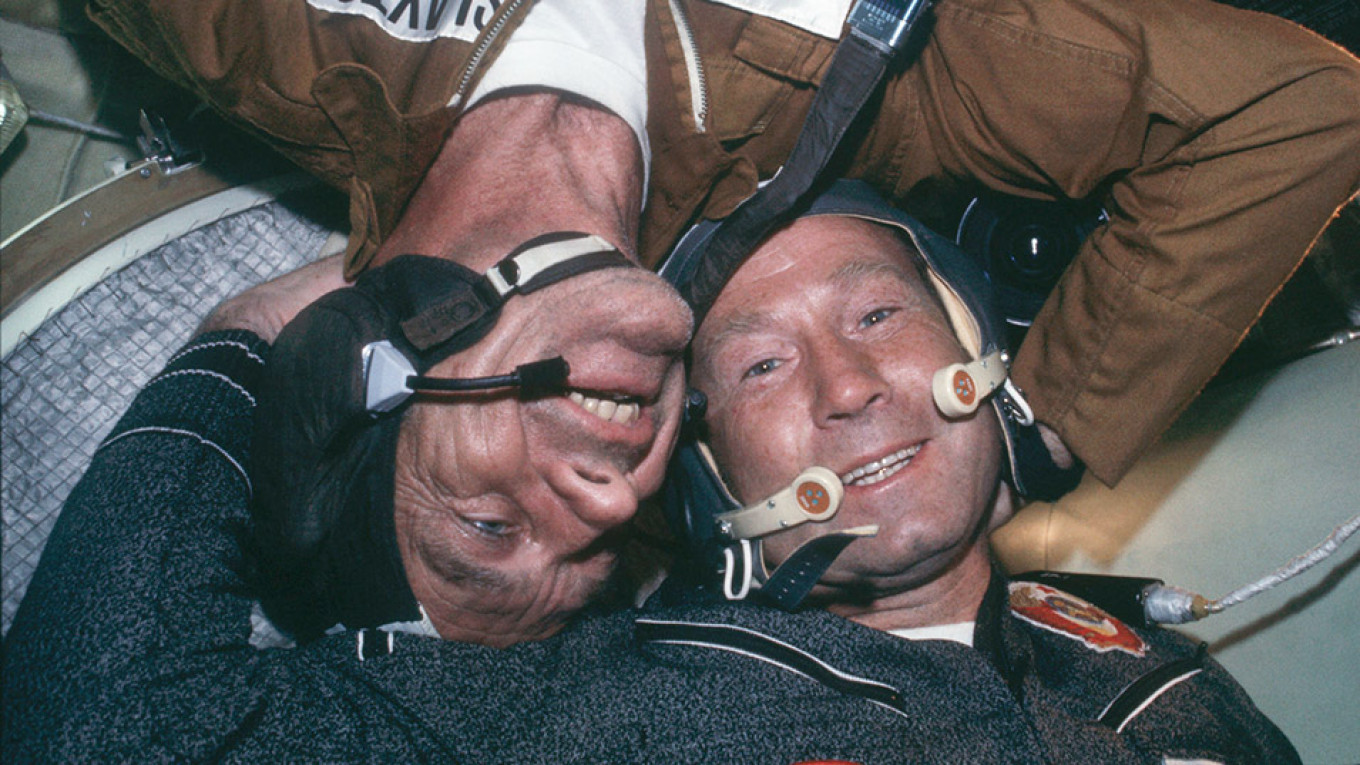
In politics, two diametrically opposed men died this year, each placing their mark on the history of the country, albeit in very different ways. At the end of October Vladimir Bukovsky, one of the country's most important and influential human rights activists, died in the UK at the age of 76. After spending a total of 12 years behind bars for anti-Soviet activities, he was sent abroad in a prisoner exchange and spent most of his life in Cambridge, continuing his work against violations of human and civil rights around the world.
In December former Moscow mayor Yury Luzhkov died in Switzerland at age 83. For 18 years he steered Moscow from a ramshackle Soviet capital into the 21st century, celebrated for some of his early efforts, such as reinstalling — or installing — street and house signs, but sharply criticized for his “crony capitalism” and corruption, including city contracts that made his wife, Yelena Baturina, a billionaire.
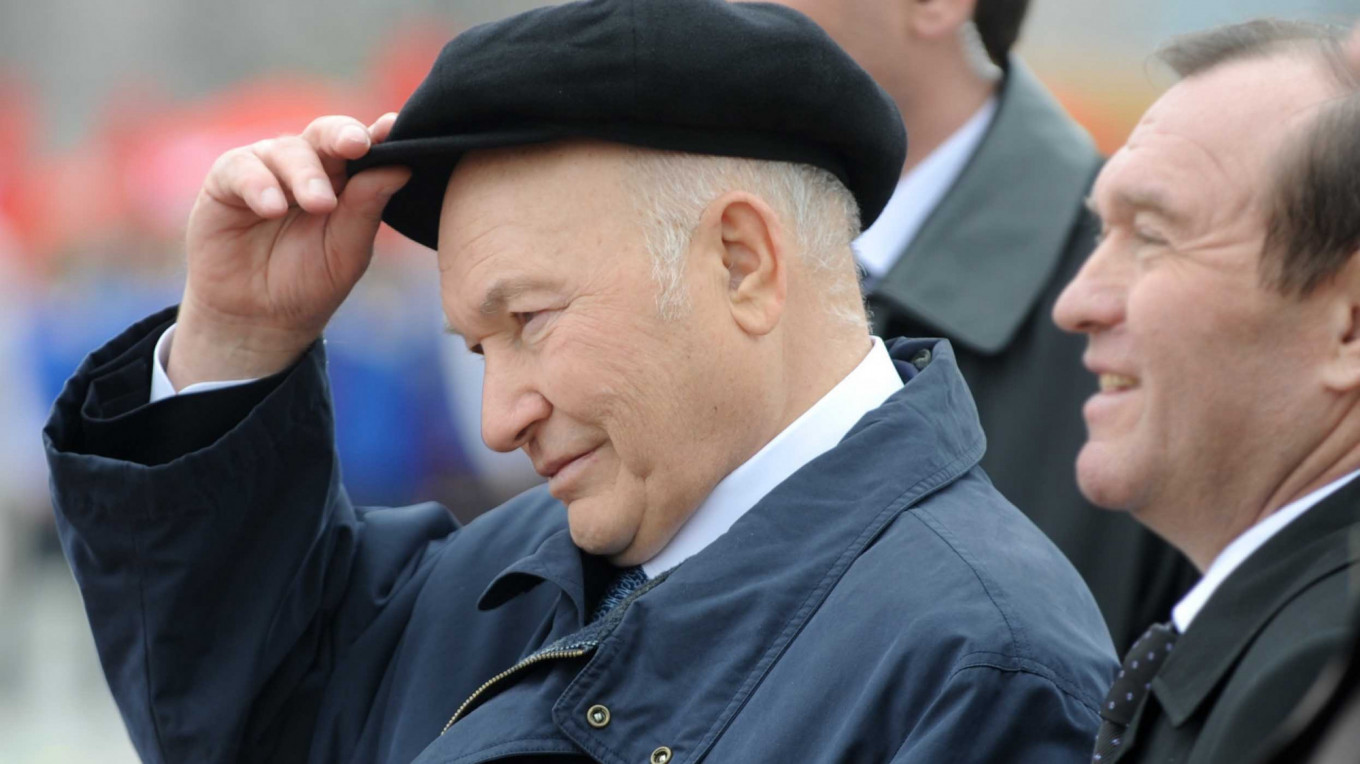
In February, Igor Malashenko, a political adviser and journalist, died of apparent suicide at the age of 64 in Spain. Once the director of the first NTV channel, he was one of the major figures in the democracy movement of the 1990s.
Journalists, readers and viewers mourned several other losses this year. In May Sergei Dorenko, a controversial journalist who was an important figure in the early post-Soviet world of journalism, died of a heart attack while riding his motorcycle in Moscow. A few days later, the young journalist Margaria Virova, editor of Wonderzine, died at the age of 25, after falling out of her apartment window while trying to take a photograph.
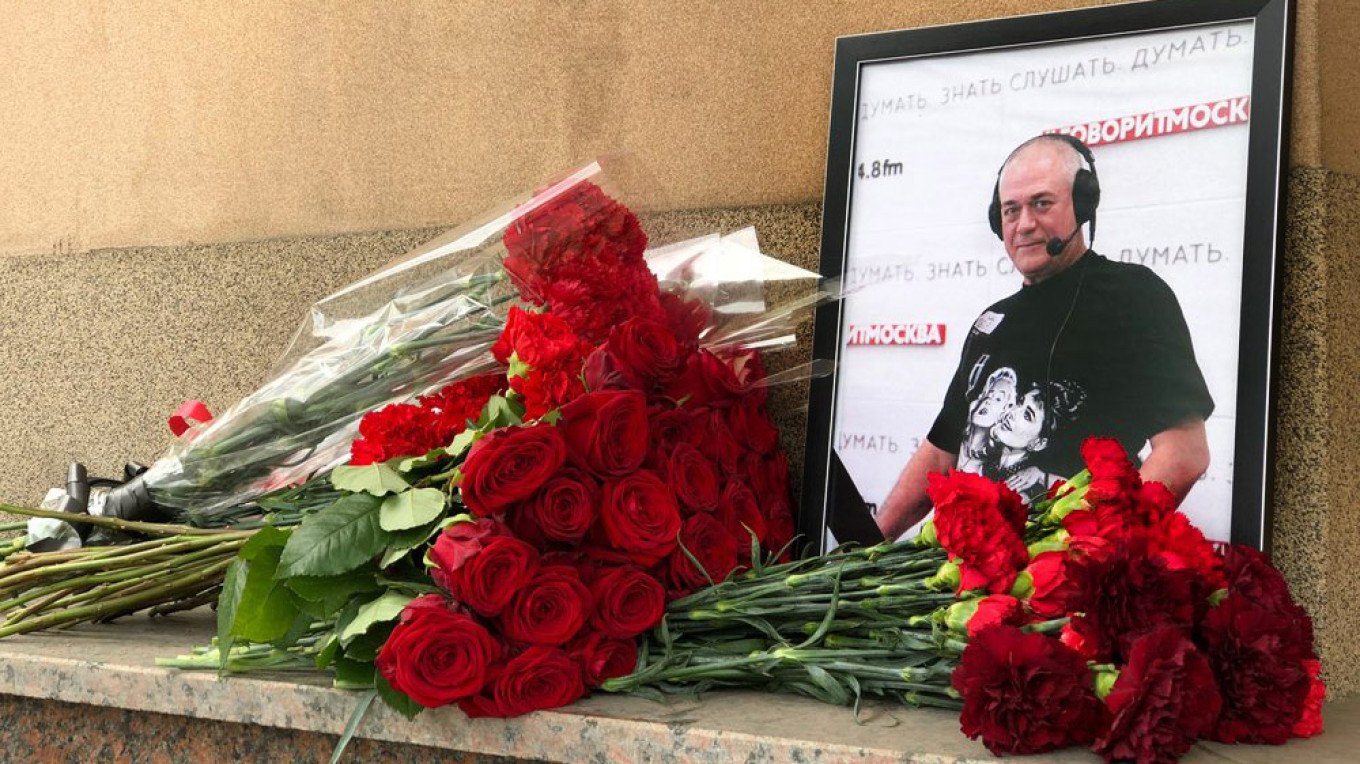
In July, Vladimir Kara-Murza died at the age of 59 after a long illness. He was also one of the key figures in the early years of post-Soviet journalism, whose regular analytical television and then radio shows continued almost right up until his death. He is survived by his son, also Vladimir Kara-Murza, who is also a journalist and political figure.
And for the staff, present and past of The Moscow Times, this year we mourned the loss of one of our first editors, Jay Ross, at the age of 85. Ross joined the paper in 1993 and helped guide young, ambitious but inexperienced reporters to become prize-winning journalists. His contribution to the careers of many Moscow Times journalists and the spirit of the paper itself will never be forgotten.
A Message from The Moscow Times:
Dear readers,
We are facing unprecedented challenges. Russia's Prosecutor General's Office has designated The Moscow Times as an "undesirable" organization, criminalizing our work and putting our staff at risk of prosecution. This follows our earlier unjust labeling as a "foreign agent."
These actions are direct attempts to silence independent journalism in Russia. The authorities claim our work "discredits the decisions of the Russian leadership." We see things differently: we strive to provide accurate, unbiased reporting on Russia.
We, the journalists of The Moscow Times, refuse to be silenced. But to continue our work, we need your help.
Your support, no matter how small, makes a world of difference. If you can, please support us monthly starting from just $2. It's quick to set up, and every contribution makes a significant impact.
By supporting The Moscow Times, you're defending open, independent journalism in the face of repression. Thank you for standing with us.
Remind me later.



